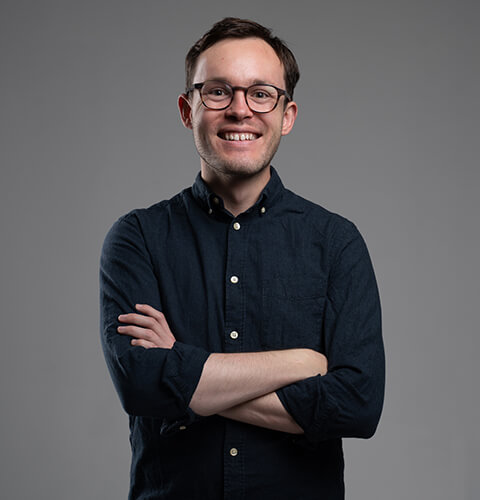Endre Elvestad is the Founder and CEO of SignLab, a startup building a digital learning platform to help families with hearing-impaired children learn sign language. He has a Masters in Computer Science from the Norwegian University of Science and Technology(NTNU), specializing in Virtual Reality & Artificial Intelligence. During his studies, he advised the government on national issues regarding education and entrepreneurship. He was appointed by the King in the council of state to sit on a commission evaluating new technologies in education.
Endre Elvestad grew up in Norway in a family that cherished travelling across the world. This enabled him to explore different cultures and find the richness in human experiences. Endre started his journey doing meaningful impact work when he was merely a young boy in high school. His school regularly organized an annual fundraiser for schools in Sierra Leone, a low-income country.
However, at the time, the country was transitioning out of civil war and faced challenging circumstances. Endre explained, “So our work there as a high school was to recreate a primary school that had previously been used as a guerilla headquarters during the civil war.”
He started as one of the organizers, and in the second year, he got the opportunity to travel down to ground zero and see the work they were doing and eventually ended up as the leader of that group. Endre continued, “There were severe droughts, poverty and devastation as far as the eye could see. I expected sadness, but I found people enjoying everyday life’s pleasures, laughing and having fun as children should have. The only thing they didn’t have was access to education, access to clean water, and access to safe space to sleep. But given all those extremes, they could have a better life if provided with these facilities. So that led me to do a lot of things in education going forward.”
Endre went on to study at the Norwegian University of Science and Technology, where he was a part of the exchange program that led him to ETH in Zurich, Switzerland to pursue engineering. His next exchange program led him to San Francisco, where he took a short break and worked as a Union Diplomat.
He recalled, “we were doing diplomatic stuff, talking to Founders and Entrepreneurs in San Francisco, which was just an amazing experience. I was the only engineer or the only technologist in the regional diplomatic Corps, they were inclined towards more of educational diplomacy, an indication of how the world’s political governing systems work, with an entrepreneurial spin to it, which I think was very educational.”
He ended the world tour with his exchange program at the University of Hong Kong. When Endre visited in 2015, it was just after the Umbrella Revolution, and he witnessed the aftermath of the uprising. SignLab was a sum total of all these experiences.
When he finally returned to Norway, he started studying how to use virtual reality and artificial intelligence to create a better way of teaching sign language, which was the subject of his thesis.
During his thesis, one of the testers was a young Norwegian mother with a four-year-old daughter who had been trying to learn sign language for about three years. Endre said, “her daughter was now entering kindergarten, and she saw her being left behind, while her peers learnt new words, communicated and advanced in their learning. She broke down in tears during the meeting and told me that she feels so tremendously guilty for not being able to communicate and give her daughter the best possible access to life.”
He continued, “Not being able to talk with your daughter or son is unfortunate, and it’s the same for children who are not able to properly communicate with their mom and dad.”
According to the UN Development Report, Norway is the most developed nation in the world. Yet, the statistics revealed that three out of four parents are unable to learn sign language. In low-income countries, that number is much higher. However, hearing-impaired young women and girls face the most acute challenges: their education is seen as a lower priority than girls and boys with hearing capabilities. They are at a greater risk of child marriage, sexual exploitation, and the negative impacts of a lack of sexual and reproductive health education. Endre continued, “And you have 64 million parents that are in this situation, one in 10 of them can adequately communicate to their children. That is a huge issue. And that’s, that’s how SignLab was born.”
SignLab is an app and a website that can be used online or offline. It enables users to learn sign language step by step. Endre explains, “so if moms are busy and have five minutes to commute, they can sit on the bus and learn some basics in sign language, so it’s made for these short bursts of focused learning, that is both fun and engaging. The app uses artificial intelligence to enable optimal learning that caters to individuals making it easier to learn.”
SignLab aims to be accessible for everyone and expand globally to help deaf children that reside in low-income countries. Unfortunately, it’s not economically viable to launch a product in these places. To combat this, the organization teams up with NGOs to bring the product to such countries.
The company is currently on track to give access to 60% of the world by expanding to countries like China, India and Indonesia, and helping the world’s hearing-impaired population by providing access to sign language to families, schools, and communities.
The company has made massive strides in the industry and won the Special Olympics Innovation Challenge hosted in Abu Dhabi in 2019. Endre was also a part of the Forbes 30 under 30 list of 2021 due to his achievements.
In conclusion, he says, “Passion is the output. It’s not the input. And if you are solving an important problem, you’re creating true change, through a product that no one has seen before.”







